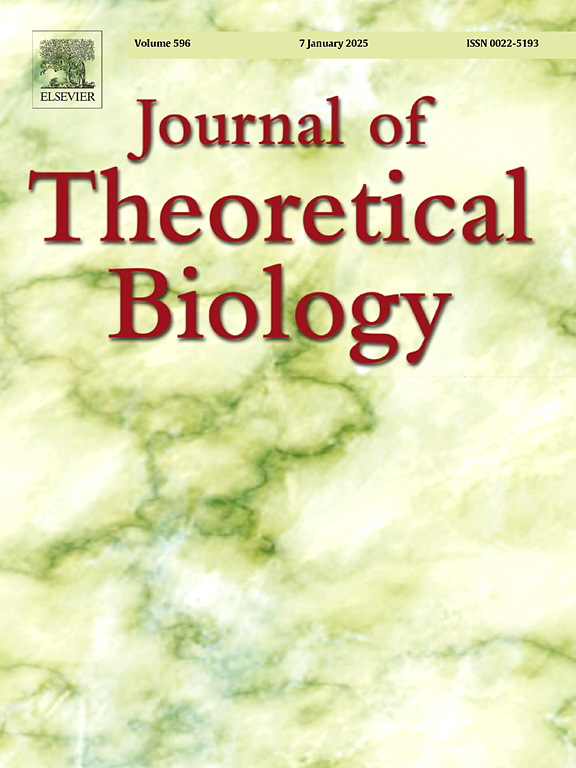Vaccination strategies in a pair formation model for human papillomavirus infection: An optimal control approach
IF 1.9
4区 数学
Q2 BIOLOGY
引用次数: 0
Abstract
Human papillomavirus (HPV) infection is a widespread sexually transmitted infection responsible for several cancers including anal, oropharyngeal, penile, vaginal, and cervical cancer. Despite HPV vaccines have been available for almost 20 years and are incredibly effective in preventing infection, the scale-up of vaccination has been slow in many low and middle-income countries. This analysis uses a pair model that explicitly accounts for sexual partnership formation to investigate HPV immunization programs. The optimality of vaccine interventions is analyzed using optimal control theory. We give formal proof of the existence of optimal control solutions and obtain first-order optimality conditions via Pontryagin’s Maximum Principle. Extensive numerical simulations are used to investigate plausible what-if scenarios to understand under which conditions the inclusion of males should be recommended in addition to female vaccination. The results suggest that a gender-neutral vaccination program should be recommended in regions where vaccination uptake in women is still low whereas for an already existing female-only program with high uptake, it is more effective to keep increasing coverage in females.
人类乳头瘤病毒感染配对形成模型中的疫苗接种策略:最佳控制方法。
人类乳头瘤病毒(HPV)感染是一种普遍的性传播感染,可导致多种癌症,包括肛门癌、口咽癌、阴茎癌、阴道癌和宫颈癌。尽管 HPV 疫苗已问世近 20 年,而且在预防感染方面效果显著,但在许多中低收入国家,疫苗接种的推广却十分缓慢。本分析采用明确考虑性伴侣关系形成的配对模型来研究 HPV 免疫接种计划。我们利用最优控制理论分析了疫苗干预的最优性。我们给出了最优控制解存在性的正式证明,并通过庞特里亚金最大原则获得了一阶最优性条件。我们使用大量的数值模拟来研究各种似是而非的情况,以了解在哪些条件下除了建议女性接种疫苗外,还应该建议男性接种疫苗。结果表明,在女性接种率仍然较低的地区,应建议采用不分性别的疫苗接种计划,而对于接种率较高的现有纯女性计划,继续提高女性的覆盖率则更为有效。
本文章由计算机程序翻译,如有差异,请以英文原文为准。
求助全文
约1分钟内获得全文
求助全文
来源期刊
CiteScore
4.20
自引率
5.00%
发文量
218
审稿时长
51 days
期刊介绍:
The Journal of Theoretical Biology is the leading forum for theoretical perspectives that give insight into biological processes. It covers a very wide range of topics and is of interest to biologists in many areas of research, including:
• Brain and Neuroscience
• Cancer Growth and Treatment
• Cell Biology
• Developmental Biology
• Ecology
• Evolution
• Immunology,
• Infectious and non-infectious Diseases,
• Mathematical, Computational, Biophysical and Statistical Modeling
• Microbiology, Molecular Biology, and Biochemistry
• Networks and Complex Systems
• Physiology
• Pharmacodynamics
• Animal Behavior and Game Theory
Acceptable papers are those that bear significant importance on the biology per se being presented, and not on the mathematical analysis. Papers that include some data or experimental material bearing on theory will be considered, including those that contain comparative study, statistical data analysis, mathematical proof, computer simulations, experiments, field observations, or even philosophical arguments, which are all methods to support or reject theoretical ideas. However, there should be a concerted effort to make papers intelligible to biologists in the chosen field.

 求助内容:
求助内容: 应助结果提醒方式:
应助结果提醒方式:


